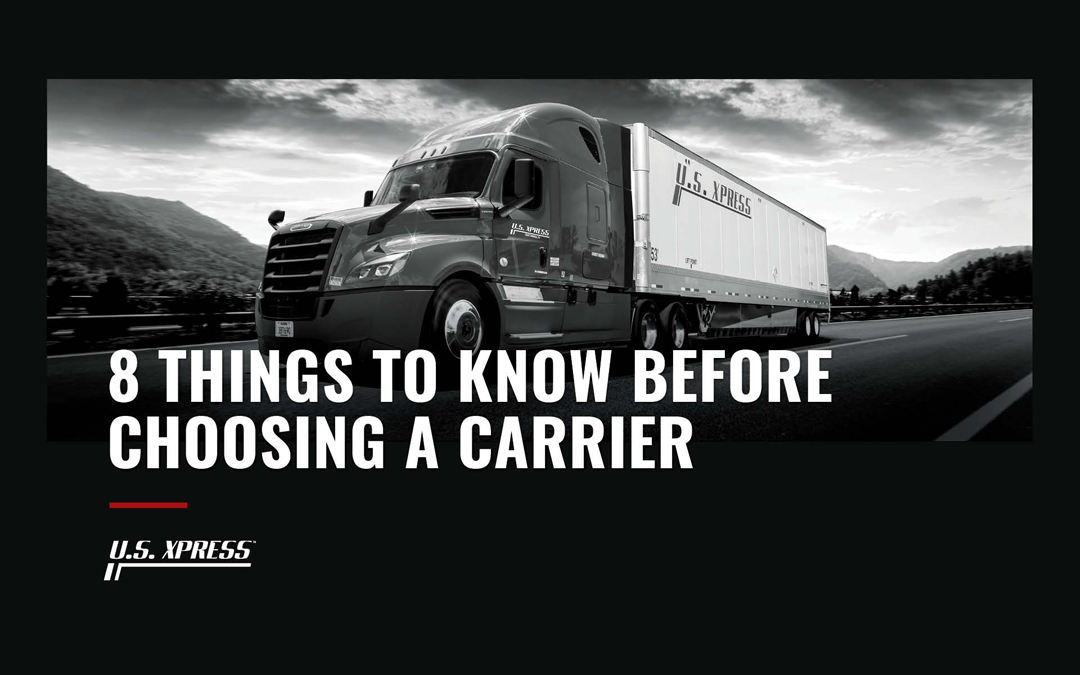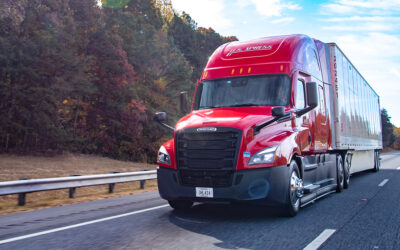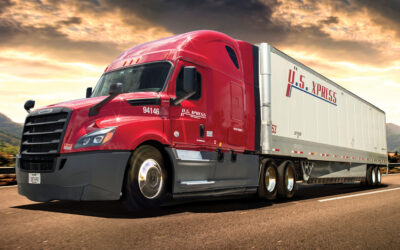With thousands of trucking companies throughout the country, it’s not easy to find which one is right for your freight. But when you’re making the decision, ask yourself these important questions.
1. Can they accommodate my freight?
Ranging from 1 truck to thousands, there are trucking companies of every shape and size. You need to make sure whichever one you choose can accommodate the capacity you need. Only shipping a little bit a few times per month? A small carrier could be a great affordable option. But if you’re shipping large amounts of freight, you need to make sure your carrier has enough trucks, and shops that keep them running, to get your deliveries where they need to be when they need to be there.
2. How do they choose their drivers?
Some carriers will hire any driver with a CDL license. Others require a certain number of years of experience. Still others run a series of drug tests before hiring. Every company is a little different, but when it comes to the safety of your freight, and of others on the road, knowing a little about a company’s driver selection and training can help you determine if they’re people you’re comfortable with handling your freight.
3. What’s their track record?
Take a look at both their safety scores and their on-time delivery rates. Making sure your freight is delivered safely is just as important as making sure it’s delivered on time. While looking into these numbers, ask what has been done, or what will be done, to improve them. Having technology and support to ensure these numbers stay solid can be a huge differentiating factor.
4. What does their support system look like?
Drivers are important, but they need the support of a number of different teams and individuals to get freight from one place to another. From shops that help maintain their trucks, to an operations team that ensures efficiency, it’s important to make sure a trucking company has the proper support for their drivers.
But drivers aren’t the only ones who need support. As a customer, you need it too. Whether it’s technology that allows you to track your freight or a strong customer experience team to stay in contact with, figure out what the carrier is going to do to keep your freight and supply chain running smoothly.
5. What will your experience with their team be like?
Before jumping into a partnership, you want to know what you’re getting into. Figure out what’s important to the carrier and how it aligns to your company’s values and needs.
An emphasis on communication is a great example. Both digital and physical communication are key when it comes to the trucking industry. With larger companies, you may have many points of contact. That can cause confusion and the lack of a personal relationship. See if you’ll have a single point of contact during your partnership – it could make or break your success.
6. What kind of experience do they have?
Some trucking companies specialize in a certain type of freight, so check and see if they have any experience with yours. Typically, larger companies will have experience across industries and could be a good choice if your freight requires any specialized equipment.
7. What do they offer?
Different service offerings are good for different things. Dedicated offerings are great if you have a large volume of freight and need trucks and teams dedicated solely to your account. OTR service offerings can get your freight all the way across the country. Since they can rotate driving instead of taking breaks, team drivers can be particularly useful if you need your freight delivered quickly. Brokerage or other specialized offerings may fit your needs even better, so be sure to look into everything that’s offered and weigh the pros and cons.
8. What is their competitive edge?
Though it may seem like a general question, any sales person should have a good answer to this. Up-to-date equipment and technology, for example, can be a huge competitive edge for companies as it can help improve efficiency, safety, and other important aspects, that will save you both time and money. Whatever it may be, make sure their answer aligns with what you’re looking for in a carrier.
All of that to say, do your research. Choosing a carrier that is right for you, your needs, and your freight can lead to a successful partnership for years to come.





